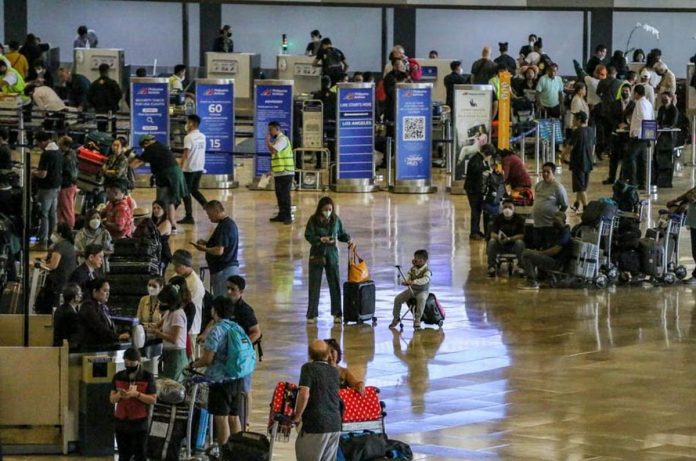
AN INFRASTRUCTURE-ORIENTED think tank questioned a mega consortium’s P267-billion price tag on its unsolicited proposal to rehabilitate the Ninoy Aquino International Airport (NAIA).
Infrawatch PH yesterday said the Department of Transportation’s (DOTr) estimated cost for the project was only at P141 billion.
The group is worried the project cost will be passed on to the public in the form of higher terminal fees.
“I’ve no debate on transparency because these are high-level conglomerates. So, I’m quite certain that they would comply with ESG (environmental, social and governance) requirements. But it’s really a question of the project cost,” Infrawatch PH convenor Terry Ridon told ANC’s “Headstart”.
He stressed every peso counts for an ordinary Filipino.
“So, I think we have to really push back on MIAC’s (Manila International Airport Consortium) idea that it doesn’t really matter because in the future there will be further gains. But I think what needs to be clear is there is a debate on the total project cost because the terminal fee moving forward up until the 25th year will basically be dependent on the total project cost. So, DOTr should negotiate down this project cost to make it a bit more reasonable,” Ridon said.
MIAC, composed of the country’s biggest conglomerates and a foreign partner, had raised its bid again, adding a P57 billion upfront concession payment to the government.
The mega consortium asserted the size of the project requires long-term investments and commitment.
MIAC said the NAIA masterplan has three phases of development, which include increases in capacity, reliability, and overall improvements in passenger experience.
NAIA is projected to become an engine of growth for the Philippines if the unsolicited proposal, with a 25-year concession agreement, will be approved, the MIAC said.
It said that beyond the P267 billion upfront payment and capital investments, the government is projected to receive an additional P280 billion over the concession period for revenue sharing and taxes.
The rehabilitation is also projected to generate P446 billion in gross economic value, including P100 billion from gross value-add in tourism activities, P152 billion from increased passenger comfort, P60 billion from passenger time savings, P65 billion from aircraft decongestion savings, and P65 billion from new local jobs, MIAC said.(ABS-CBN News)



